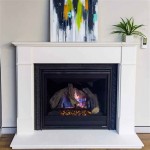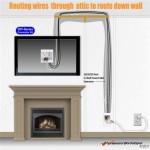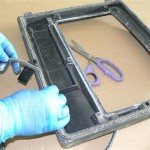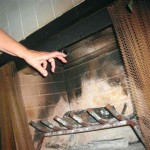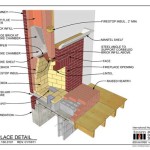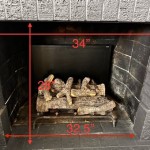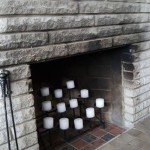Fireplace Brick Sealer: A Comprehensive Guide
When it comes to maintaining a fireplace, protecting the brickwork is paramount. A fireplace brick sealer plays a crucial role in safeguarding the brick from moisture damage, weather elements, and general wear and tear. This guide will delve into the essential aspects of fireplace brick sealer, providing insights into its significance, types, application techniques, and much more.
Significance of Fireplace Brick Sealer
Fireplace brick is a porous material that can easily absorb moisture, leading to cracks, deterioration, and a shortened lifespan. A fireplace brick sealer acts as a protective barrier on the brick surface, repelling water and other liquids. By preventing moisture penetration, it minimizes the risk of damage and extends the life of the brickwork.
Types of Fireplace Brick Sealers
Fireplace brick sealers come in various types, each with its own advantages and applications. The most common types include:
- Water-based sealers: These sealers are easy to apply and environmentally friendly, but they may require multiple coats for maximum protection.
- Penetrating sealers: They penetrate the brick's pores, forming a protective barrier that resists moisture from within. They may darken the brick color slightly.
- Solvent-based sealers: These sealers provide a durable, waterproof finish but have a strong odor and require proper ventilation during application.
Application Techniques
Applying a fireplace brick sealer is a relatively straightforward process. However, proper preparation and technique are crucial for optimal results. Here are the general steps:
- Clean the brick surface thoroughly to remove any dirt, dust, or debris.
- Apply a test patch of sealer in an inconspicuous area to ensure compatibility with the brick type.
- Using a brush or roller, apply the first coat of sealer evenly over the brick surface.
- Allow the first coat to dry completely before applying subsequent coats. Most sealers require two to three coats for maximum protection.
Other Considerations
Apart from the type and application, there are other factors to consider when choosing a fireplace brick sealer. These include:
- Color: Sealers can alter the appearance of the brick, so it's important to select a sealer that complements the desired aesthetic.
- Gloss level: Sealers range from matte to high-gloss finish. Choose a gloss level that aligns with the desired look.
- Fire resistance: Some sealers are specifically designed for use on fireplaces and possess fire-resistant properties.
Conclusion
Fireplace brick sealer is an essential tool for preserving and protecting the brickwork of your fireplace. Understanding the different types, application techniques, and considerations involved will enable you to make informed decisions while choosing and using a sealer. By applying a high-quality fireplace brick sealer regularly, you can safeguard the longevity and beauty of your fireplace for years to come.

Interior Brick And Dust Sealer Matt Finish

How To Apply Sealer A Brick Wall Part 1

Interior Brick And Dust Sealer Matt Finish
How To Make A Brick Fireplace Look New Hunker

Clear Matte Finish For Fireplace Painting Brick Paint Sealer Finishes

Chimney Crown Seal Vs New Construction Full Service

Interior Brick And Dust Sealer Matt Finish

How To Seal Dustproof An Exposed Internal Brick Or Masonry Wall Floorseal

How Chimney Sealer Can Improve Your Home The Paver

How To Paint A Brick Fireplace In 4 Easy Steps Fireplacepainting Com
Related Posts

